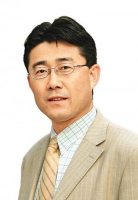个人简介
Education
DPhil Oxford University, United Kingdom
M.Sc. Beijing Agricultural University, China
B.Sc, DVM Shanxi Agricultural University, China
Academic and Professional Experience
2016 – present Adjunct Chair Professor, Faculty of Health Sciences, University of Macau
2015 – present Dean, Savaid Medical School, University of Chinese Academy of Sciences (UCAS)
2011 – present Deputy Director-General, Chinese Center for Disease Control and Prevention
2008- present -Vice-President, Beijing Institutes of Life Science, Chinese Academy of Sciences (CAS);-Professor, Institute of Microbiology, Chinese Academy of Sciences;
-Director, CAS Key Laboratory of Pathogenic Microbiology and Immunology, IMCAS
2004 – 2008 Professor, Director-General, Institute of Microbiology, Chinese Academy of Sciences (IMCAS)
2001 – 2006 Research Lecturer, Nuffield Dept. of Clinical Medicine, Oxford University
1999 – 2001 Welcome Trust (UK) International Research Fellow, Howard Hughes Medical Institute, Children’s Hospital; Dept. of Biological Chemistry and Molecular Pharmacology, Harvard Medical School; and Dept. of Molecular and Cellular Biology, Harvard University (Drs Don C Wiley and Stephen C Harrison lab)
1998 – 1999 Research Associate (Band 3), MRC Human Immunology Unit, Institute of Molecular Medicine, University of Oxford
1995 – 1998 Welcome Trust/MRC Postdoctoral Research Assistant (RS1A), Nuffield Dept. of Clinical Medicine,Institute of Molecular Medicine, Oxford University, Drs John Bell, Andrew McMichael and Bent Jakobsen lab.
(Three months of academic visit as a postdoc fellow at Dept. of Clinical Neurosciences, Dr Robert Bell lab, The University of Calgary, Canada, in the end of 1994, before taking up the Oxford postdoc position)
1987 – 1991 Teaching Assistant and Lecturer (Virology), College of Vet. Med., Beijing Agricultural University (BAU), P.R. China
研究领域
 查看导师最新文章
(温馨提示:请注意重名现象,建议点开原文通过作者单位确认)
查看导师最新文章
(温馨提示:请注意重名现象,建议点开原文通过作者单位确认)
Professor Gao’s research focuses on the “host jump” or interspecies transmission of the emerging zoonotic pathogens, such as avian flu, Middle East respiratory syndrome coronavirus (MERS-CoV) and Ebola. Based on his long-term interests in influenza neuraminidase (NA) inhibitors and drug-resistance, His group have developed a novel strategy for influenza virus NA inhibitors. He has also done a great deal of the work underlying the immune cell molecular recognition mechanism, some of which are milestone work for immune recognition and response. The work on the related field includes:
Molecular basis of host “jump” or interspecies transmission of zoonotic pathogens and enveloped virus entry/release, including influenza virus, measles virus and Middle East respiratory syndrome coronavirus (MERS-CoV) etc., which provide insights into vaccine and therapeutic agent development. Representative publications include: Nature, Science, Nature Structural and Molecular Biology, Nature Communications, Proceedings of National Academy of Sciences USA, Cell Host and Microbe, EMBO Journal, Journal of Virology etc.
Discovery of emerging pathogens, new pathogen-infected hosts and new forms of infectious diseases and molecular epidemiology etc. Representative publications include: Science, Lancet, PLoS Medicine, PLoS Pathogens, New England Journal of Medicine, Journal of Virology, Emerging Infectious Diseases, Molecular Microbiology etc.
Molecular basis of T/NK cell immune recognition, which leads to new therapeutic ideas to develop. Representative publications include: Nature, Immunity, Proceedings of National Academy of Sciences USA, The Lancet, Cell Host and Microbe, Journal of Infectious Diseases, Journal of Immunology, Journal of Virology etc. In this field he has also developed a new ELISPOT-based TB diagnostic kit, now widely used in China.
During the 2013-2015 Ebola outbreak in West Africa, Gao led the China Mobile Laboratory Testing Team in Sierra Leone in the fight against Ebola. He spent two months there (September to November 2014), at a time when the outbreak was at its peak. He not only led the team for field work (both diagnostic lab work and holding/treatment center), but also played a key role for communicating and coordinating with government officials, international aid organizations, as well as local communities.


